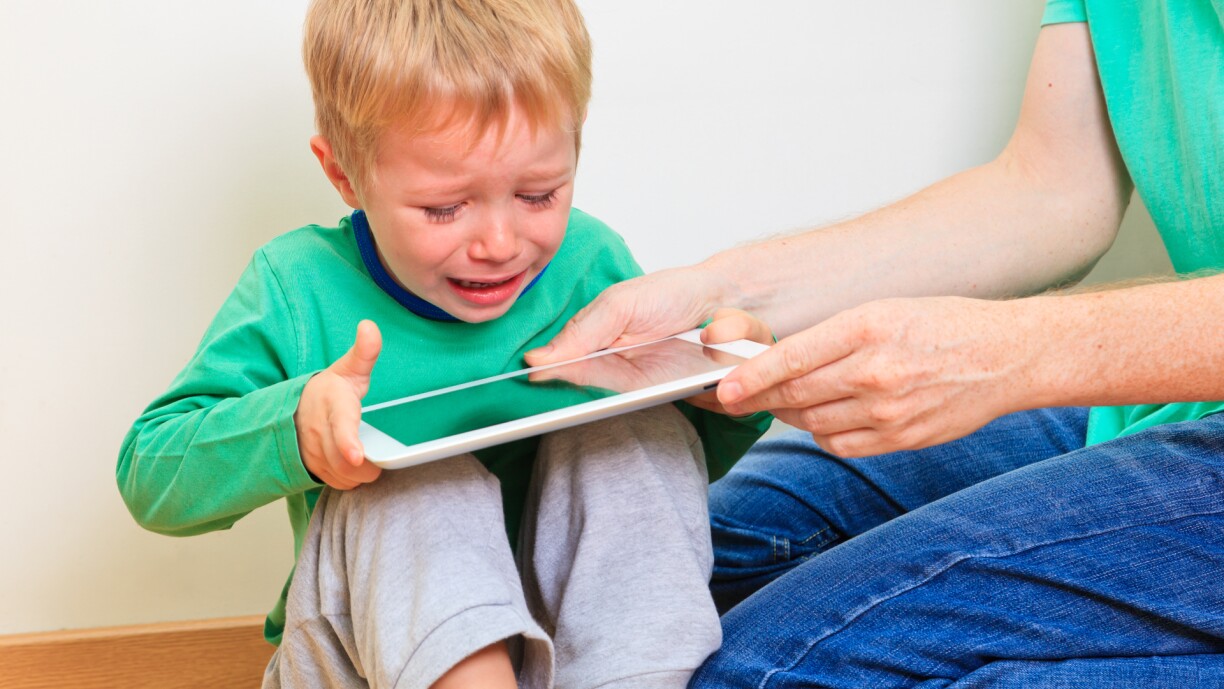
In January, Dr Anne-Lise Ducanda addressed the issue of screen addiction in very young children at Luxembourg’s Lycée Vauban.
Dr Ducanda, a founding member of the Screen Overexposure Collective (COSE), recounts her initial encounter with this health concern back in 2012 when parents began seeking help for children showing signs of addiction.
She clarifies that occasional screen time, such as watching a cartoon on TV or nursery rhyme on YouTube or engaging in supervised video calls with relatives, is not cause for alarm.
Instead, she emphasises the worrisome trend of children under three years old spending excessive time — more than four hours a day in some cases — engaged with screens.
“According to the latest Ipsos survey from 2022, toddlers under the age of two are already spending an average of 3 hours and 11 minutes daily in front of screens. The youngest patient I’ve encountered was just 11 months old,” Dr Ducanda reveals. Our colleagues from RTL Infos have collected five testimonials from young patients grappling with screen addiction.
During her presentation, Dr Ducanda shared a video featuring Hugo’s mother, Julia, who described her son’s journey. Julia reminisces about Hugo’s infancy, noting that he was “completely normal” until around the age of one when they introduced him to screens. Initially, they used educational content, hoping that he would pick up some English by listening to short songs. However, over time, his screen time escalated.
“By the time he turned two, we started noticing significant changes in Hugo,” Julia recalls. “He became increasingly distant, avoiding eye contact, refusing to cuddle, and, most concerning, he didn’t talk at all,” his mother recounts.
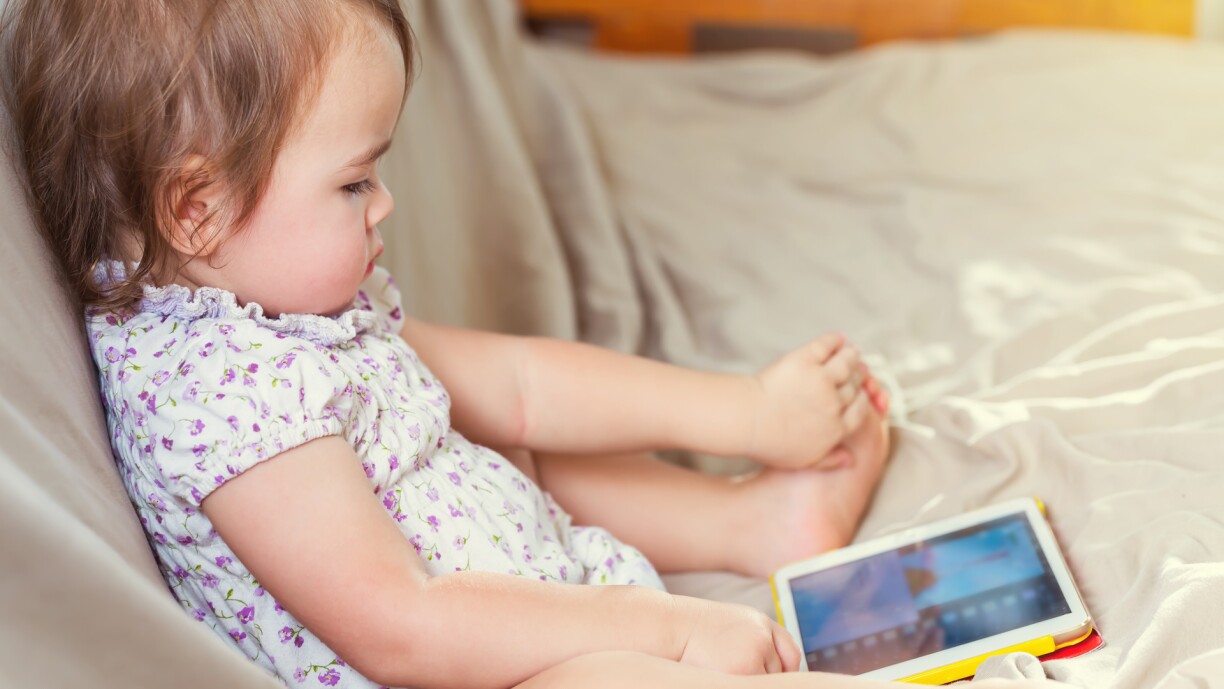
Despite initial reassurances from acquaintances attributing Hugo’s behaviour to his multilingual upbringing — he was exposed to Spanish and French at home — as well as his gender (“boys are a little slower than girls, it will come, don’t worry”), concerns mounted after a paediatrician’s appointment at the age of two raised red flags.
Alarmed, Hugo’s parents embarked on a whirlwind of consultations with specialists, including psychologists and speech therapists. In the video, a psychomotricist attempts to engage with the 2-year-and-8-month-old Hugo, but his response is dishearteningly minimal: “The child doesn’t react at all, doesn’t say a word. His face is blank, expressionless.”
The revelation that Hugo, at such a tender age, was already ensnared by screen addiction was a profound shock to his parents. Determined to address the issue, they implemented a strict 30-day screen-free regimen, which yielded rapid and transformative results.
“After just two weeks of withdrawal, we noticed improvements. By the third week, it was even more apparent. And by the end of the month, Hugo was talking,” Julia recounts in the video. “It’s been five months since we eliminated screens entirely, and I’m happy to report that Hugo’s progress has been remarkable. At his recent paediatric check-up, the doctor affirmed that Hugo is on track in his development and ready to enter nursery school without additional support, as we’d been recommended at one point,” Julia adds.
Breastfeeding is not solely about providing nourishment; it is also a vital opportunity for parent-child bonding, beginning with eye contact. But what happens when a screen interrupts this crucial interaction?
Dr Ducanda shared a brief video created by Swiss researchers. Here it is below (in French):
The video first shows a mother being fully present while breastfeeding, making eye contact with her baby while nursing. In this first scenario, the specialists explain, “a fundamental form of communication is established between the mother and the child — a sensory exchange that fosters attachment.”
The video then shows a mother breastfeeding her baby, but not looking at them as she checks her phone. The effects are quickly felt, the specialists continue: “If the mother is not fully present, the baby may fall asleep prematurely, leading to inadequate feeding and increased demands for food,” the specialists elaborate. “This cycle of dissatisfaction can lead to irregular eating patterns and exhaustion for parents, who may struggle to comprehend their child’s distress.”
While brief moments of screen distraction are not necessarily harmful, excessive screen use during breastfeeding can leave the baby feeling unheard. The silent and invisible nature of screens prevents the child from understanding why their mother’s attention is diverted, leading to feelings of frustration and a demand for attention.
“The issue with screens lies in their silent and invisible nature, depriving the child of meaningful interaction with their mother,” the specialists emphasise. Addressing this frustration promptly is essential to prevent potential long-term effects on the parent-child relationship.
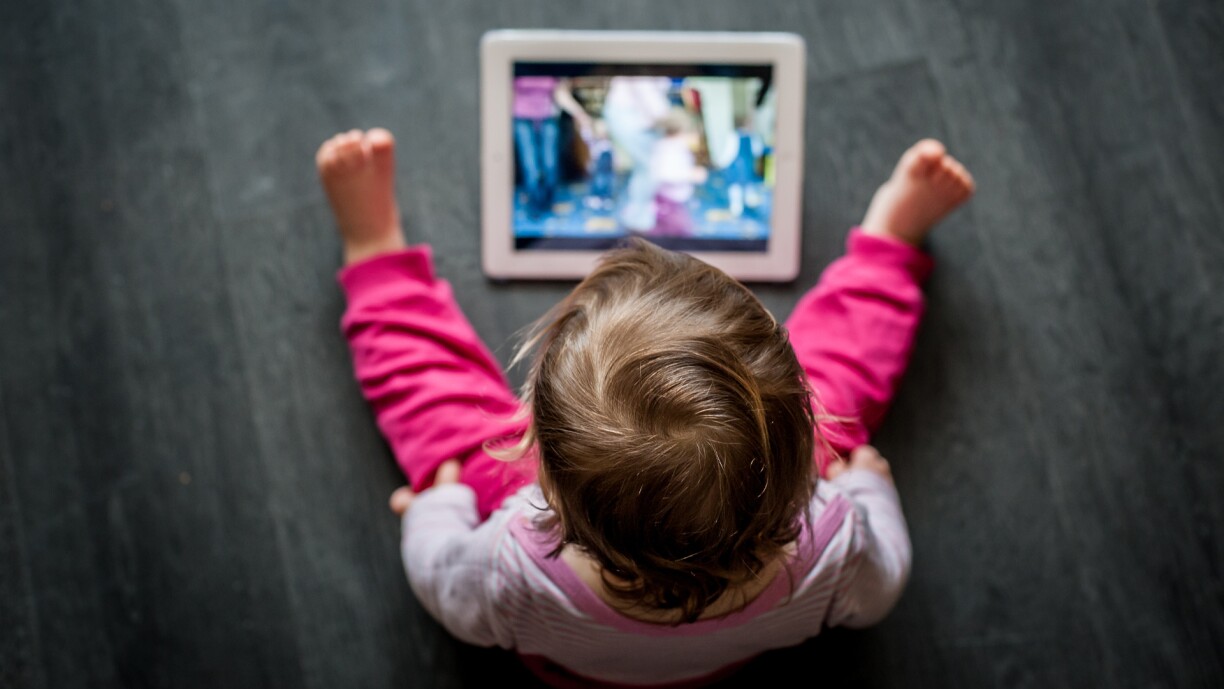
“Little Adam was diagnosed as autistic by an autism resource centre at the age of 2 years 8 months, exhibiting severe symptoms,” reports Dr Ducanda.
“He displayed self-harming behaviours, didn’t say a word, and didn’t cuddle. In his home, the TV was constantly on,” Dr Ducanda explains. “And then the father called me and said, ‘Ms Ducanda, I don’t think it’s autism, he’s overexposed to screens’. So, we agreed with the father that he would stop using screens,” the doctor recounts.
For a fortnight, the child “screamed and banged his head against the walls,” she reports. But two months later, “it’s spectacular. He’s saying sentences and cuddling.” Dr Ducanda recommended a reassessment at a different hospital in 2019. “And the results were unequivocal. The child no longer has any signs of being autistic. This means that some children are wrongly diagnosed as autistic,” she claims.
It should be noted that this delicate subject of confusion between autism and screen addiction has placed Dr Ducanda at the centre of fierce controversy in the past. Autism is a neurodevelopmental condition characterised by differences in communication and social interaction, but inwardly also by deep passion and focus on particular topics and interests. Jumping to conclusions about a child’s behaviour without expert consultation can lead to misunderstandings and misinterpretations.
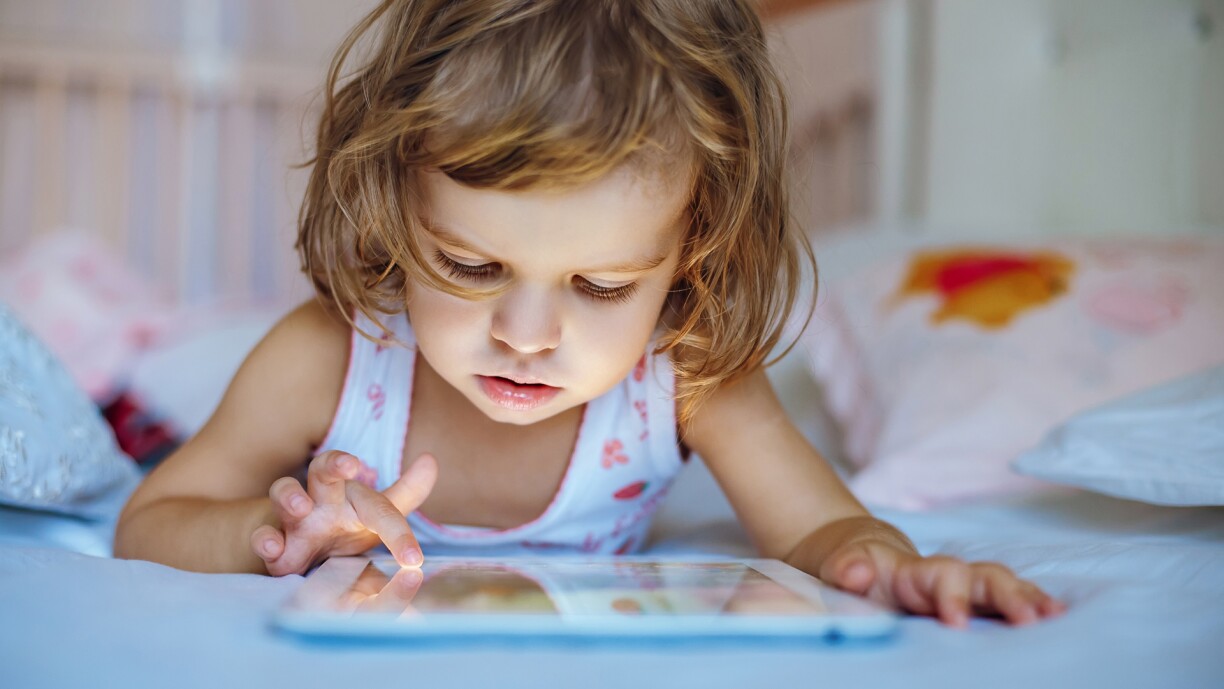
This is an extreme example, which may not be widespread: the phenomenon of what is in French referred to as “mains papillons” (“butterfly hands”) in children. It occurs when small children spend most of their time in front of a tablet or a smartphone. These children’s hands are no longer able to close their fingers properly or use a pencil properly, because their fine motor skills are not being used enough. As a result, their hands look like weak little butterflies, hence the name.
Dr Ducanda sheds light on this issue, explaining that constant engagement with screens, where interactions primarily involve tapping and swiping, hampers the development of essential motor skills in young children. While navigating a digital interface is effortless — simply requiring an open hand to touch the screen — physical tasks requiring grip strength and dexterity, such as holding a pencil, become challenging.
Normally, “from the age of 4 months, a child knows how to hold something, they have to do the thumb-index pinch, spread their fingers apart, and then squeeze. But I have seen 4-year-olds who don’t have the grip, who can’t hold a pencil. Or some can hold a pencil, but there’s no strength in their hands, because you don’t need strength to touch a screen. Children haven’t practised their motor skills enough with their hands to hold, press, push, unstick, turn, unscrew,” Dr Ducanda explains.
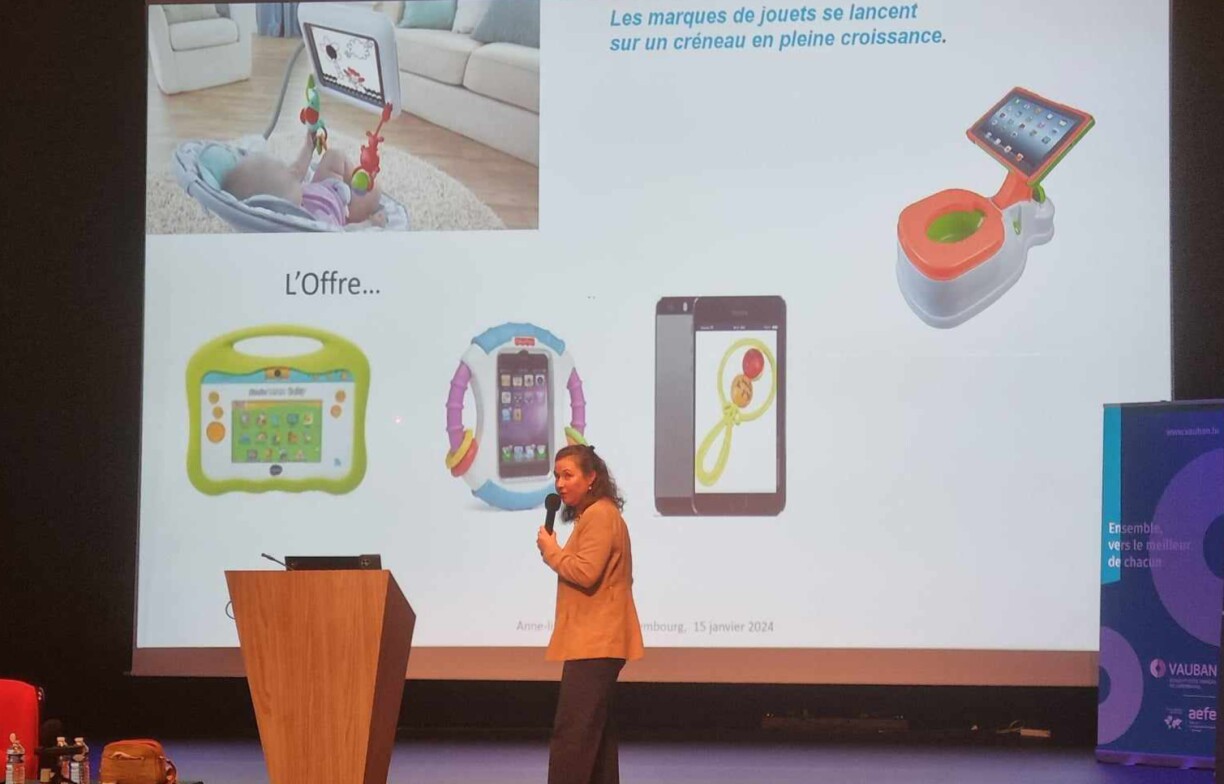
“If screens are dangerous for toddlers, why do we use them? It’s simple: parents are being tricked. 70% of parents of children aged 0-2 use screens because they are supposed to be educational”, Dr Ducanda laments.
From YouTube tutorials on letters and numbers to mini-computers designed to familiarise children with technology, the allure of educational content is pervasive. Dr Ducanda illustrates this with the case of Matteo, a 3-year-old boy whose perceived delayed development raised concerns.
“During our consultation, Matteo responded to my greetings with colours — ‘red’ to ‘hello’ and ‘yellow’ to ‘you may sit in the chair’,” recounts Dr Ducanda. Throughout the consultation, the little boy went on to name the colour of the objects he saw, supported “by a very proud dad who encourages him, who asks him to tell the doctor, what colour is that? Green,” the boy replied. “Did you see, Doctor? He knows colours,” Dr Ducanda recalls.
“Matteo’s family, like many others, habitually kept the TV on for hours, exposing him to four hours of screen time daily,” Dr Ducanda observes. “So, I told his dad to stop using screens and asked him to do one more thing: stop teaching him about colours with those educational videos. Until a child can speak properly and make subject-verb-object sentences, stop teaching colours, numbers, and the alphabet. That’s not learning, that’s parroting,” Dr Ducanda stresses.
She saw the headmistress again a month later, who was relieved and told her that “he has stopped saying colours all the time. He hasn’t reached the same level of language proficiency as the others, but now he understands when I give him little instructions and he’s starting to learn at school.”
Related:- Early digital exposure: Bee Secure highlights rising internet use among children under four